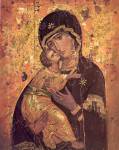24th Sunday of ordinary Time year ’A’
"Then Peter came to Jesus and asked, “Lord, how many times shall I forgive my brother or sister who sins against me? Up to seven times?” Jesus answered, “I tell you, not seven times, but seventy-seven times" Peter is pondering over what it means to forgive. We see his generosity in thinking how forgiving seven times seven isn’t bad at all! Yet by multiplying this figure Peter gives by ten and by seven, he makes it unlimited, showing how forgiveness can’t be restrained by any limitations. We know how when someone has undergone a wrong-doing then more often than not the first movement is for vengeance. Jesus turns our attention to God’s faithfulness: in Isaiah e read ’For a brief while I abandoned you but I shall gather you with tenderness and not let go of you.’ God reveals His Tenderness towards us with an endless friendship that will have no end, in Jesus He buys us back. Our unhappiness lies in the fact that we like to consider ourselves as masters of this world and like to think everything revolves around us as though we ourselves are in the centre. Now, it is God who is in the centre of the world. Like Petr we need to decentre ourselves and get into an attitude of fundamental adoration. Everything comes to us from God, and we are happy to receive ourselves from God Himself. His love transforms us and heals us, in our life we learn how to forgive. “Therefore, the kingdom of heaven is like a king who wanted to settle accounts with his servants. As he began the settlement, a man who owed him ten thousand bags of gold was brought to him. Since he was not able to pay, the master ordered that he and his wife and his children and all that he had be sold to repay the debt. “At this the servant fell on his knees before him. ‘Be patient with me,’ he begged, ‘and I will pay back everything.’ The servant’s master took pity on him, cancelled the debt and let him go. “But when that servant went out, he found one of his fellow servants who owed him a hundred silver coins. He grabbed him and began to choke him. ‘Pay back what you owe me!’ he demanded. “His fellow servant fell to his knees and begged him, ‘Be patient with me, and I will pay it back.’ “But he refused. Instead, he went off and had the man thrown into prison until he could pay the debt. When the other servants saw what had happened, they were outraged and went and told their master everything that had happened. Through a parable Jesus illustrates to us just how Merciful God is. Jesus must have chosen this story out of what went on at the time. It is about a leader from the east or a Roman governing a colonised country. This minister had an enormous debt: 10 000 talents, this was what a family could live on during 30 million days! We are always in a state of debt before God our Creator, before Him we are always before the gift of life and love. But love is a free gift that cannot be bought by anything, it calls forth nothing but recognition. God’s attitude towards us is no based upon justice, love can be nothing but merciful. In the Heart of God forgiveness knows neither expectation nor half-measures, it is immediate and complete. “Then the master called the servant in. ‘You wicked servant,’ he said, ‘I cancelled all that debt of yours because you begged me to. Shouldn’t you have had mercy on your fellow servant just as I had on you?’ In anger, his master handed him over to the jailers to be tortured, until he should pay back all he owed. “This is how my heavenly Father will treat each of you unless you forgive your brother or sister from your heart.” When his companion begged him to put aside his debt, he threw himself on him as if to strangle him saying ’pay me back what you owe me!’ Forgiveness is a gesture of love that transforms us, it can’t be bought. Jesus is telling us that the time of history that is ours is a great giving back of what we owe. It is not the time of judgement nor of punishment. Our debts are limited and can be forgiven. In the prayer of the Our Father Jesus has us pray: ’Forgive us our debts as we forgive those who trespass against us.’ Pity gives us the right attitude to have towards our brother who asks us to be able to live. A horizon of recognition stretches out before us so we can savour all the good things given to us. This Word is priceless for whoever said it cannot do so without applying it to himself. Peter takes seriously the role he will play in the community. God has made us ready to receive the grace of such a gift! He transforms us in his image so that we become who we are. We can join him in Love and spread ourselves in Love allowing him to pass before us, established in Love.

